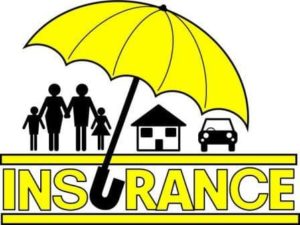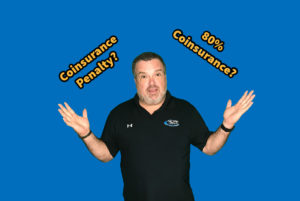Are you looking for the best insurance agent in Maryland?
What does it mean to be the best insurance agent in Maryland?
The criteria for the best insurance agent or insurance broker can vary from person to person.
What you feel is best may not be the same as what someone else may feel is best.
Some criteria to look for in the best insurance agent or insurance broker in Maryland:
- Local insurance agent that supports the community
- Access to high quality insurance companies
- Ability to provide affordable and customized options to fit your specific insurance protection needs
- Personal service – not a faceless 800 number on online only interactions
- Online service options – ability to self-service when wanted or needed
- Multiple options for communication
Local Insurance Agents That Support The Community
 The big online insurance companies simply do not sponsor local events or provide the community support like the local insurance agents.
The big online insurance companies simply do not sponsor local events or provide the community support like the local insurance agents.
You may see them sponsor the professional sports teams, but do they sponsor the local youth sports teams? Do they support or help out in local fundraisers?
Most of the time, the cartoon character companies will not be found supporting our local events.
But the best local insurance agents in Maryland, like Huff Insurance, supports our local community and organizations. Check out our Community Support Page.
Pictured here is the trophy table at Huff Insurance. Each year, we are proud to sponsor several youth sports teams in the area.
The best insurance agents have access to high quality insurance companies
The best insurance agents will be able to have insurance options to fir your needs. As a Trusted Choice™ Independent Insurance Agent, Huff Insurance can provide those options.
Huff Insurance is contracted to do business with some of the top insurance companies in the country. You can see most of them on our page titled Companies We Represent.
Huff Insurance hand-picked the insurance companies that we represent. We feel that the best insurance agencies need to represent the best insurance companies.
Ability to provide affordable and customized options to fit your specific insurance protection needs
Shouldn’t the best insurance agents in Maryland be able to provide you with options?
Huff Insurance is an insurance broker representing multiple companies. Because of this, we can usually find the best insurance solutions for your specific needs. Essentially, we are your one stop shop for most of your insurance needs.
As an independent insurance agent, we are not locked down to one insurance company. We can find the best options for your needs.
Some of our online competitors simply offer to save you money. The dangerous part of that is that they are often cutting your insurance coverage to keep their promise of saving money. Although they may be able to save you a few dollars up front, it can cost you thousands of dollars should you have an uncovered claim. The best insurance agents in Maryland will not put you at risk just to save a few dollars.
So when shopping, you need to keep the Total Cost of Insurance in mind, not just the annual premium.
Personal service
With today’s technology, it seems that personal service levels are low or even non-existent with some insurance companies.
How long does it take to get to a live person when you call your insurance company? After several voice prompts or number pressing, you may finally get through to a live person. But where is that person located?
Many times, that person is in another state or even in another country. If that is the case, how confident can you be that they know what the best insurance plan is for your family here in Maryland? Would the best insurance agent in Maryland have you calling overseas for your insurance needs?
Huff Insurance has been based in Pasadena, Maryland since our inception in 1960. We know the insurance needs of our Maryland customers. We will get to know you and your family and design a plan with you and for you.
Online service options
It’s 2024, so we understand that there are times that you may want to access your information online or via a mobile app. We have those options available for you. If you visit our Huff Portal Page, you can see that we have both an online portal option and a mobile app option available for our clients.
There are several things you can do on our portal 24/7
- Access your auto ID cards to print or save to your phone
- Request to add/delete/or change a vehicle on your policy
- Request a change to any other insurance policy
- Report a claim with the ability to upload photos of the claim site and damage
- Access to your insurance company website to make payments
- For business insurance clients, you can issue or re issue certificates of insurance
- Etc.
The best insurance agents in Maryland have the technology for multiple options of communication
Again, we realize it is 2024 and the old ways of communication are not always the best way for you. The best insurance agents in Maryland will communicate with you via your preferred method.
Huff Insurance can communicate with you in the following ways:
- Telephone – During business hours, you will always get a liver person answering the phone.
- Secure Email
- Docusign – for secure signing of insurance documents
- Snail Mail (Not preferred with today’s mail delays)
- Text
- Video Call
- Online Call
- In Person
One method you will not see on our list is fax. About 5 years ago, we retired our fax machine to the basement, where it sits next to our pagers, flip phones, and typewriters.
But as you can see, we are able to meet with you however you like.
If you like to do business in person, we also offer that option. We do require an appointment so we can make sure someone will be available to give you their undivided attention. You can use our Appointment Link to schedule in person or virtual appointments.
We can also do business completely virtually or via phone. With the use of e-signatures through Docusign, you do not have to come in person to get an insurance policy. Nor do you have to wait on the mail to receive the applications and mail them back. Heck, that could take a month these days….
We find that most of our clients like having the options. Some like the ease of doing business virtually and e-signature, but they also like having the option to come in and talk to someone if they have a question or if things get complicated.
The best insurance agents in Maryland provide you with choices
Choices are important when it comes to protecting your family with the best insurance plans available. Communication choices are also important.
Huff Insurance provides both of these choices for you and your family.
Contact Huff Insurance Today
Huff Insurance is here to help with your insurance needs, using the communication method that is best for you.
 At Huff Insurance we hear insurance questions every day from clients, future clients, friends and family. This blog contains a list of the most commonly asked insurance questions with links to their respective blogs and web pages for the answers.
At Huff Insurance we hear insurance questions every day from clients, future clients, friends and family. This blog contains a list of the most commonly asked insurance questions with links to their respective blogs and web pages for the answers.



 GAS GRILLING SAFETY TIPS
GAS GRILLING SAFETY TIPS
 We are asked this regularly. The purpose of personal umbrella insurance is to provide additional limits of liability above your other insurance policies.
We are asked this regularly. The purpose of personal umbrella insurance is to provide additional limits of liability above your other insurance policies.

 In the insurance world, certain property insurance policies have a coinsurance clause. This clause can impose a coinsurance penalty if it is not met. Most business insurance policies include the coinsurance clause. The clause stipulates what percentage of the total value of your property must be insured to be fully reimbursed for a loss, even a partial loss. Most claims that we see are actually partial losses. The coinsurance clause is meant to stop someone from grossly under insuring a property in order to save money on insurance premiums.
In the insurance world, certain property insurance policies have a coinsurance clause. This clause can impose a coinsurance penalty if it is not met. Most business insurance policies include the coinsurance clause. The clause stipulates what percentage of the total value of your property must be insured to be fully reimbursed for a loss, even a partial loss. Most claims that we see are actually partial losses. The coinsurance clause is meant to stop someone from grossly under insuring a property in order to save money on insurance premiums.

 The popularity of home based businesses has been on the rise over the past several years. Although running your business from your home can be a smart, cost saving decision, it can create costly gaps in your insurance coverage.
The popularity of home based businesses has been on the rise over the past several years. Although running your business from your home can be a smart, cost saving decision, it can create costly gaps in your insurance coverage.
 What can you do to help with biker safety?
What can you do to help with biker safety?
 According to The Center for Disease Control and Prevention, drowning is the second leading cause of death for children aged 1 to 14. Everyday about 10 people die from unintentional drowning. You should take extra precaution to make sure it doesn’t happen to someone you know. We will go over some pool safety tips to keep in mind.
According to The Center for Disease Control and Prevention, drowning is the second leading cause of death for children aged 1 to 14. Everyday about 10 people die from unintentional drowning. You should take extra precaution to make sure it doesn’t happen to someone you know. We will go over some pool safety tips to keep in mind.
 The big online insurance companies simply do not sponsor local events or provide the community support like the local insurance agents.
The big online insurance companies simply do not sponsor local events or provide the community support like the local insurance agents.